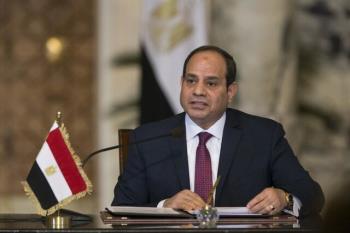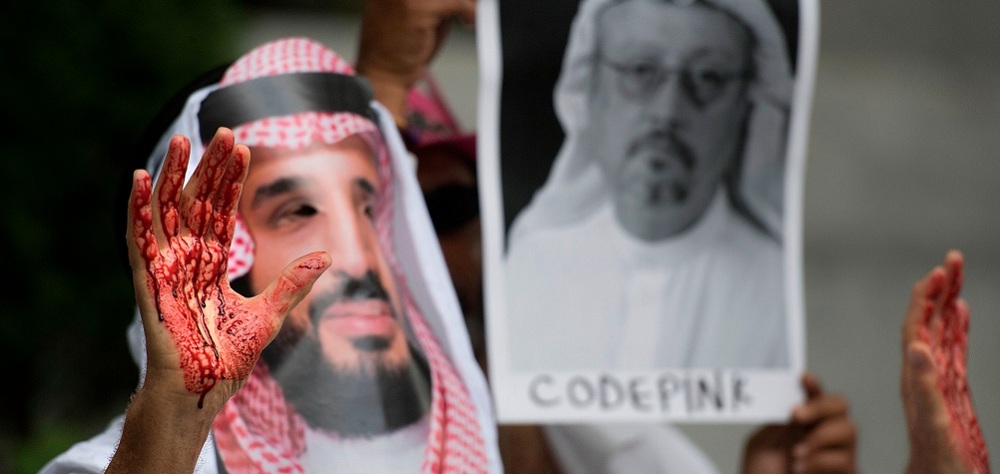Alwaght- On Thursday, a Turkish court decided to halt Jamal Khashoggi murder trial and transfer the case to Saudi Arabia.
Jamal Khashoggi was vocal Saudi critic of the Saudi Crown Prince Mohammed bin Salman who was horrifically assassinated at his country's consulate in Istanbul in early October 2018 by a death squad sent by the Saudi security service.
"We have decided to transfer the case to Saudi Arabia," said the judge in charge of the trial in absentia of 26 Saudi nationals involved in the assassination.
The decision comes as the Turkish prosecutor's unexpected request in late March 2022 surprised many political observers. Although this judicial decision may seem like an independent decision, it suggests that Recep Tayyip Erdogan's shift to improvement of relations with the Arab countries of the Persian Gulf was the main reason for the recent ruling. In addition to completely questioning the Erdogan government's justice in the case of Khashoggi murder, the move backs internal and external claims of a lack of independence in the Turkish judiciary.
Erdogan smiles to sworn enemy
Because of the different view to the popular uprisings that swept through West Asia and North Africa since 2011, Erdogan's Turkey witnessed a considerable level of tensions with Arab states in general and Persian Gulf Arab monarchies in particular. After assumption of power as crown prince, Prince Mohammed bin Salman of Saudi Arabia rose as the top leader in the Muslim world with adverse view to Erdogan. The Khashoggi case was instrumentalized by Erdogan to pressure the young king-in-waiting and thus rose as a case of hostility between the two.
There is no doubt that Erdogan's media propaganda put the heaviest pressure on bin Salman, undermining his position and ambitions as crown prince. However, the transfer of the murder case to the Arab kingdom should be deemed a political about-face marking a new chapter in Ankara-Istanbul relations. Economic and political factors, many agree, are driving this U-turn.
Economic drivers of Erdogan's shift
Economic crisis over the past few years has been Erdogan's Achilles heel in national politics. The Turkish leader along with leaders of ruling Justice and Development Party (AKP) are well aware that if the current economic predicament continues, they would have no place in the country’s politics. In fact, in the years after 2002, the AKP proved successful in performance by presenting and implementing precise plans and right policies. The most significant economic breakthroughs of Erdogan and the AKP in the first decade of their rule in Turkey were the dramatic increase in economic growth, per capita production, attraction of foreign investment, employment, and success in inflation control. For over a decade, Erdogan's government has been very successful in curbing inflation, reducing the double-digit inflation rate of above 70 percent, which Turkey has suffered from for years, to one of the lowest inflation rates in the region, to 7 percent, in 2008.
All these factors have stood as Erdogan and his party's winning cards for stay in power. These factors have become a weak spot for him in recent years, however. Over the past three years, due to the slump in lira value, the inflation rate of nearly 20 percent and the instability in the economic decisions of the leaders of the Justice and Development Party, more than ever before, Turkey has faced the risk of fleeing of foreign capital. In the past few years, inflation rate of above 15 percent has delayed foreign investment in the country. Meanwhile, a 19 percent interest rate in Turkey had attracted foreign investors to the country, but a reduction to 15 percent of this rate would likely lead to the fleeing of foreign investors.
Squeezed by such circumstances, Erdogan seems to be trying to assuage Ankara's strained relations with Arab countries such as Saudi Arabia and the UAE to ease the economic pressures. A clear sign of this approach is Erdogan's recent attempt to change bin Salman's view by transferring to the kingdom the most important security case in the Saudi Crown Prince's political life. The Turkish leader hopes that Riyadh will save the AKP from the crisis by investments in the Turkish economy and industry.
Political drivers
Another important issue motivating a change in Erdogan's attitude towards relations with Riyadh is the domestic political issues and the possibility of AKP suffering a defeat in the next parliamentary and presidential elections. The economic hardships that have been unprecedented in two decades have prompted opposition parties, as well as large part of the public, to call for Erdogan's resignation and holding early parliamentary and presidential elections.
According to results of 15 new polls conducted by various Turkish media and research institutes, support for the ruling party, which has been in power since 2002, has dropped from 42 percent in the 2018 elections to 36 percent at present. The polls also suggest that the AKP, along with all its allies, especially the Nationalist Movement Party (MHP), will secure only 45 of seats, a percentage never enough to form a new government independently. Erdogan hopes to use de-escalation with a country like Saudi Arabia to escape election defeat.
Flexibility and shift that can put an end to Erdogan era
The Turkish leader may think that flexibility to Saudi Arabia can help improve the AKP position in the Turkish politics, but the reality is that closeness to a ruthless dictator and the one who Erdogan himself called a "criminal" would deliver the reverse and can foist a heavy defeat on Erdogan.
In the current conditions, a large number of Turkish citizens as well as Muslims in Islamic countries recognize bin Salman as a criminal and tyrant who orders the killing of his opponents in unusual ways in various countries, has been bombing innocent Yemeni people for 8 years while maintaining them under the most severe inhuman siege, has turned Saudi Arabia into a prison for its opponents. Therefore, Erdogan's closeness to Prince Mohammed could have a profound effect on his image and position and can tarnish them among the Turkish people.
From another aspect, Erdogan's flexibility in Khashoggi case cannot substantially help him beat economic and political challenges since Saudi, as well as Emirati, rulers are not interested in Erdogan's stay in the power as they rate him a constant threat that can again in the future turn hostile to them and also find him leading their most adverse political rival camp, Muslim Brotherhood, in the region and Muslim world.



























